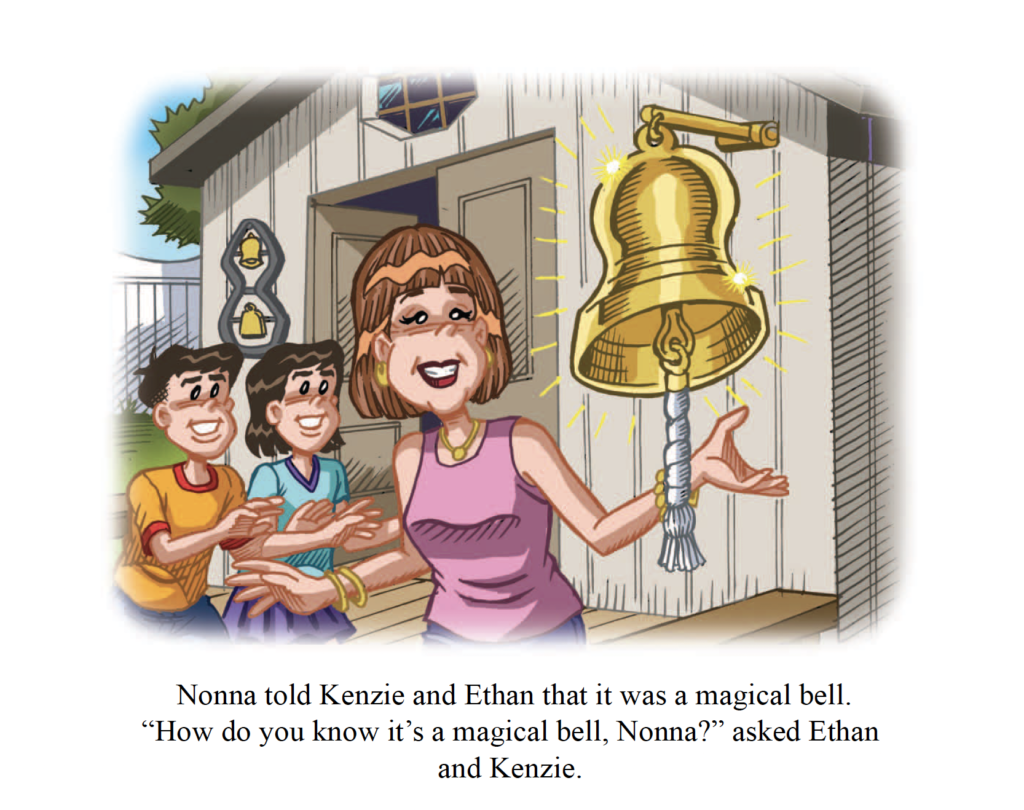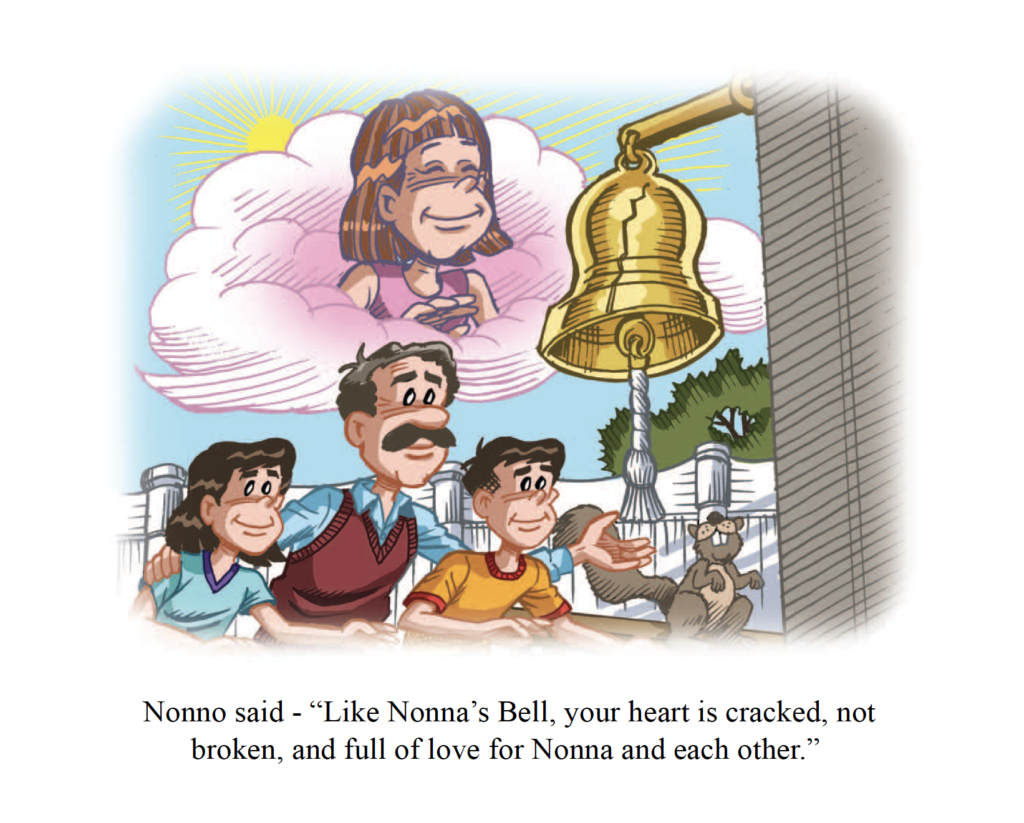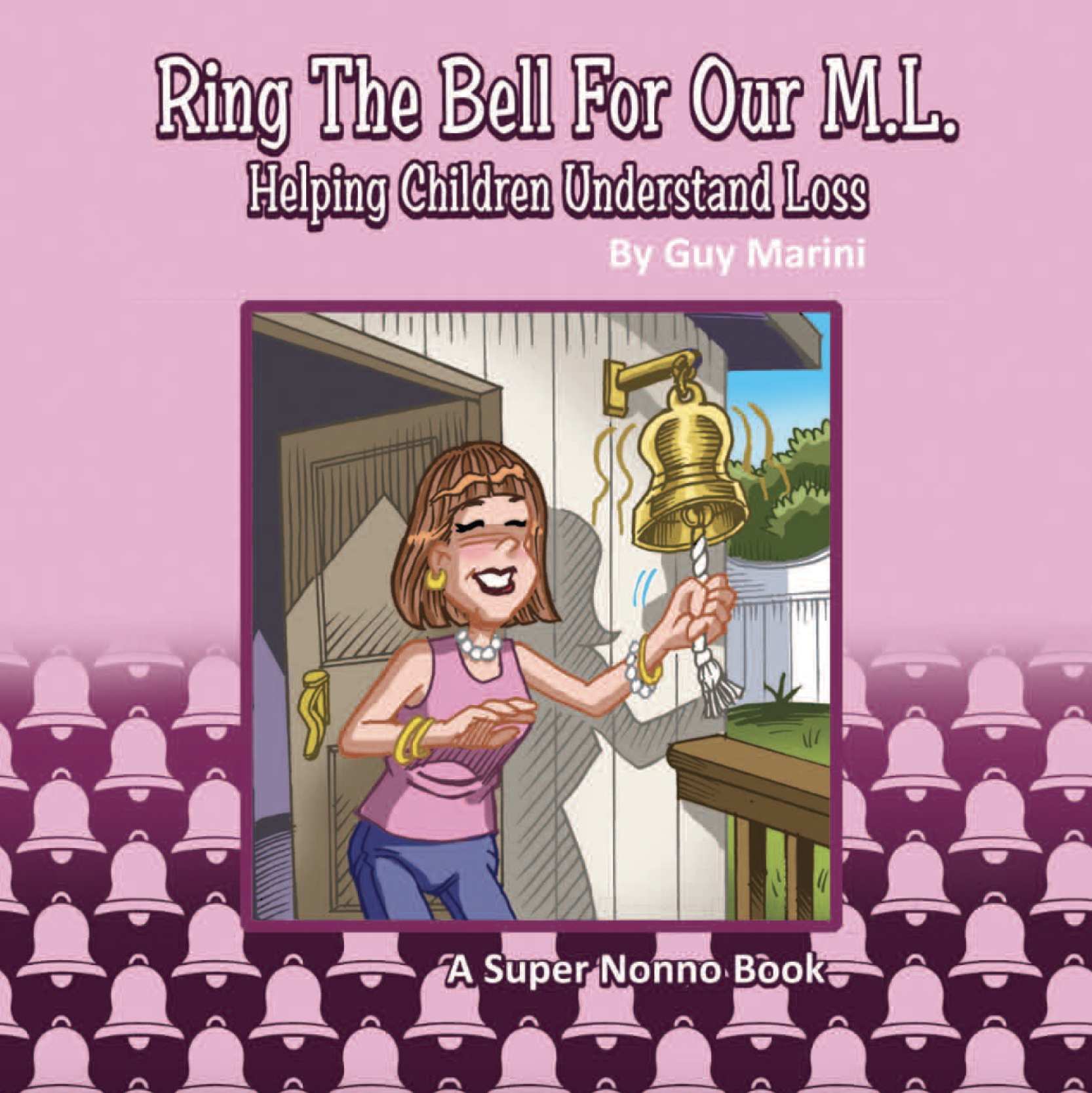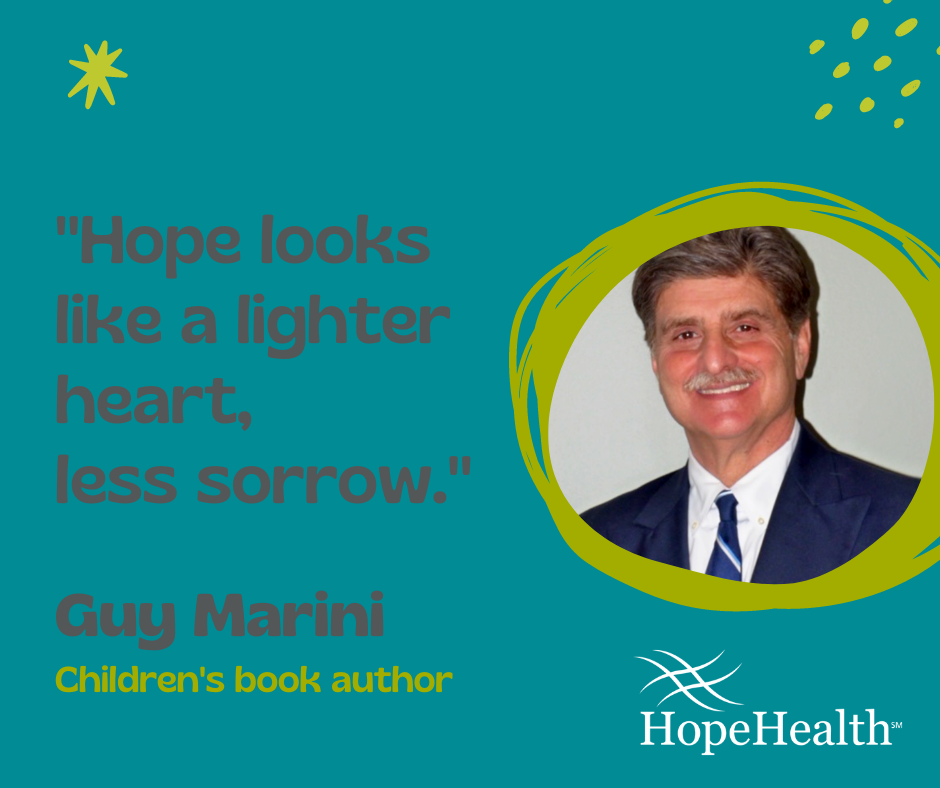Guy Marini loves telling the story of how he and his late wife, Mary Lee (M.L.), first met back in 1972. It was a summer night, and they were two teenagers hanging around with friends in a Boston ice cream shop.
“She was this cute, bright, sweet girl with a beautiful smile. I was smitten with her from the get-go,” Guy recalls.
Together 46 years, Guy and M.L. raised their family in Pawtucket, Rhode Island, and later delighted in hosting overnight visits from their grandchildren, Ethan, now 13, and Makenzie, 11.
M.L. made a playroom for the kids called “The Imagination Station,” while Guy, a retired business executive, entertained them by writing semi-biographical children’s stories on a pad of paper. He later self-published the stories as Super Nonno Books. (“Nonno” means grandfather in Italian, and “Nonna” is grandmother in Italian.)
After several years of illness, M.L. died in February 2020 in the care of HopeHealth hospice. Guy turned to HopeHealth for grief support and recently published a new Super Nonno story, “Ring the Bell for Our M.L.: Helping Children Understand Loss.” Guy has donated copies of his book to the grief support reading library in the HopeHealth Hulitar Hospice Center in Providence.

A story of hope and healing
“Ring the Bell for Our M.L.” is a fictionalized story of how Super Nonno and his grandchildren coped with loss. In the book, Nonna M.L. has a bell on her garden gazebo that cracks and sounds different after she passes away.
Guy was inspired to write the book after reflecting on his own complex response to losing M.L. He wanted to share what he has learned about grief and healing over the past two years.
He had observed how his grandchildren reacted in different ways to the loss of their nonna. Guy noticed Ethan could articulate his feelings of shock and loss. “He said he felt like a piece of him had died,” Guy recalls. But Makenzie was more withdrawn and tearful.
Guy says private grief counseling helped him, but he still had a tough time, particularly during the winter holidays and after his father died in March 2021. He also felt cultural and generational pressures to “get over it.”
On the advice of his grief counselor, he decided to try a virtual grief support group from HopeHealth.

How grief support group helped
“I was hoping for some way of handling these emotions,” Guy says. “I started listening to people in the group and was like, ‘Oh yeah, I feel that. I’ve experienced that.’ These people get it. They can help me, and I can help them.”
What he learned from his support group is that life goes on but it looks a bit different. It’s a lesson the characters in his book also learn. They see Nonna’s cracked bell like a cracked heart, “still beautiful, still loud, still lovely, but just different,” Guy says.
M.L. was a bright, radiant woman who loved entertaining, and one of her end-of-life wishes was for her memorial to be a happy celebration of life. A silver lining of the pandemic was it gave Guy time to plan thoughtfully.
Last fall, he and his family fulfilled M.L.’s wish by hosting a party at a country club, complete with open bar, food, a DJ, and an intimate, 13-minute video tribute to M.L. and their love story.
The mood was sad but also festive, just as M.L. wanted it to be. Guy realized he had reached a place where he could enjoy her memory more.
“Hope looks like a lighter heart, less sorrow,” Guy says. “Frankly, having lost her opened up my heart in a way that I think I’m more empathetic than I was before. I feel like I’ve been connecting with people more deeply and more genuinely.”
At one point during the party celebrating M.L.’s life, Guy turned around and saw 100 people dancing in a conga line.
“It was quite a release of emotion,” he says. “We released our sorrow in a positive way.”
Are you struggling to cope after the death of a loved one? A virtual support group might offer comfort. Call (844) 671-HOPE or Information@HopeHealthCo.org with questions.


